PRESERVING A MILITARY LEGACY FOR FUTURE GENERATIONS
The following Reflections represents RM2 Alfred Campbell’s legacy of his military service from 1967 to 1971. If you are a Veteran, consider preserving a record of your own military service, including your memories and photographs, on Togetherweserved.com (TWS), the leading archive of living military history. The following Service Reflections is an easy-to-complete self-interview, located on your TWS Military Service Page, which enables you to remember key people and events from your military service and the impact they made on your life. Start recording your own Military Memories HERE.
Please describe who or what influenced your decision to join the Navy.

As a Cub Scout, the pack took a trip to the Philadelphia Navy Yard. We went through a submarine, and I was scared the thing would sink or blow up or something, so I ran through it. Going out, we passed all those old mothballed ships, and something inside me rang and said, “I want to be on one of those gray ships someday.
Fast forward to high school. I flunked the preliminary scholastic aptitude test. The guidance counselor said I wasn’t college material. I was dejected but hung in there. It was the Vietnam war raging, and a teacher, who was a veteran Marine, kept telling us guys about life in the service. For someone like me, without a student deferral, the next stop was Vietnam in the Army. So, I looked into the 120-day delayed entry to the Navy. I took my oath in high school and entered Great Lakes NTC on November 3, 1967.
Whether you were in the service for several years or as a career, please describe the direction or path you took. What was your reason for leaving?
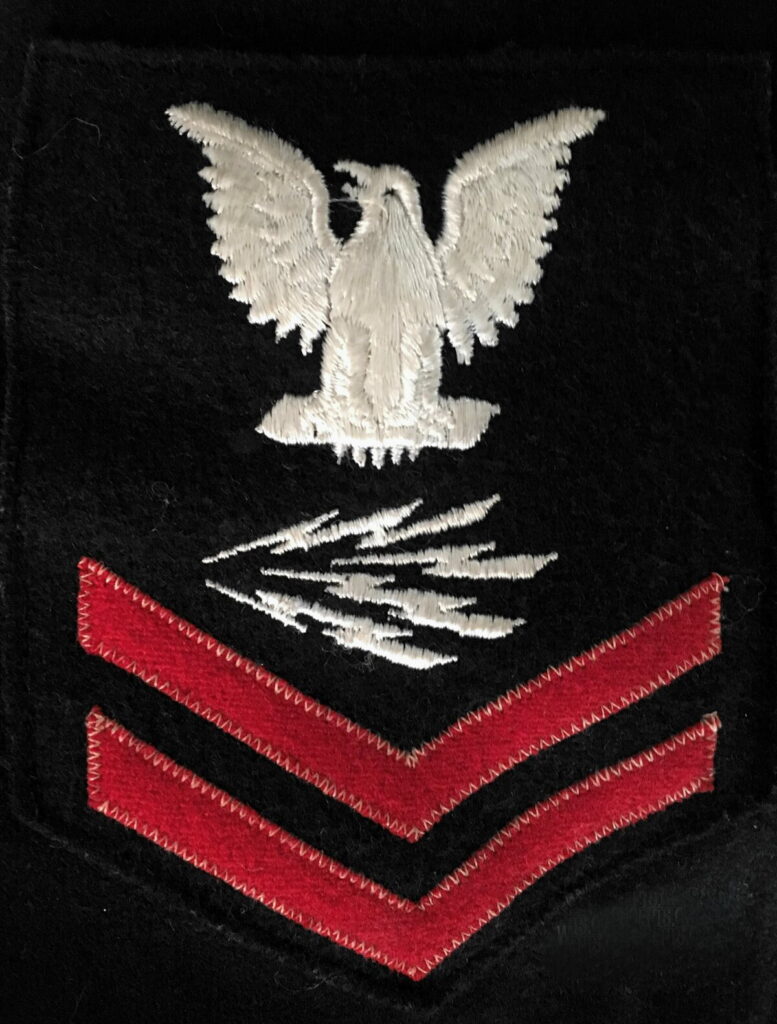
I initially wanted to be a Photographer’s Mate. It was a career path I sought for many years, and I figured it would be my life for 25 years, and then I would retire from the Navy as a CWO and get another job.
The Navy didn’t need photographers; they needed radiomen. I kicked against it and tried to get a rating transfer, but that didn’t go anywhere. A chief took me aside and told me the facts of life when I was in Basic Electronics and Electricity School, which I hated like snakes. He said if I didn’t shape up, I would go into the fleet as a non-rated seaman apprentice. (Basically, lower than whale shit.). I decided to make the best of a bad situation.
After serving ashore in Oahu at a communication relay center and aboard a minesweeper, my time was up for “the talk” with the skipper.
My dad passed away, and my mother was alone, so, being short, I opted to depart, leaving a tax-free reenlistment bonus, as it would have been sworn in a combat zone.
If you participated in any military operations, including combat, humanitarian and peacekeeping operations, please describe those which made a lasting impact on you and, if life-changing, in what way?
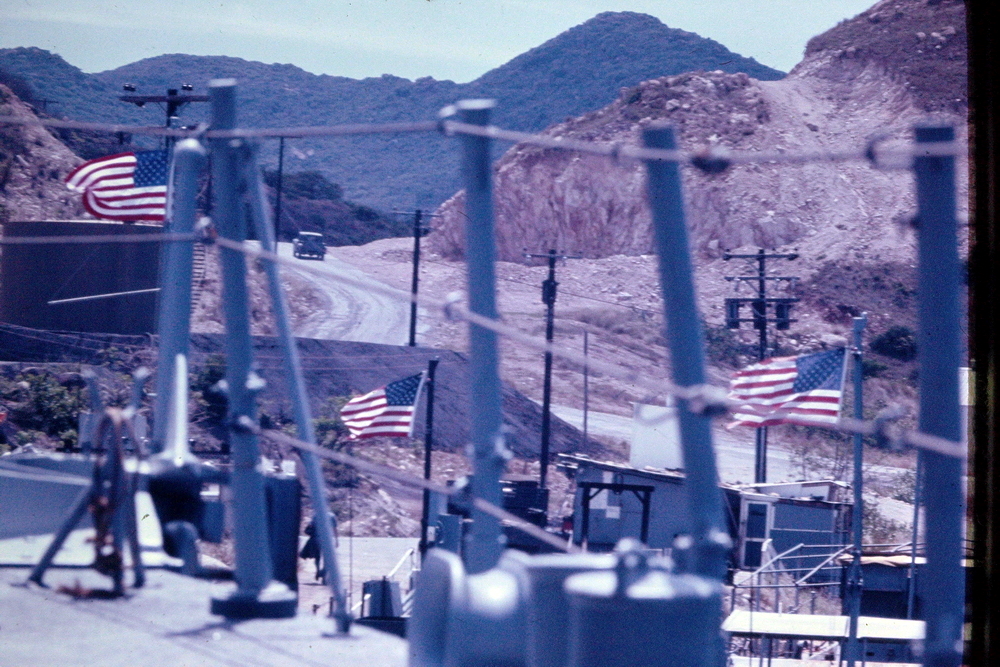
Patroling off the coast of Vietnam, we stopped fishing boats to check for enemy insurgents but never found any.
When we first docked at the South Vietnamese Navy’s small boat docks in Cam Rahn Bay, all the South Vietnamese sailors ran around in their underwear. Some were holding hands, and I thought, “What the heck is this?” Then we were told that that is how they act with friends. (I guess so!) Maybe they had more sense than we did; running around in underwear would take a big load off doing laundry.
When we stopped in Subic Bay, Philippines, the captain asked for a volunteer to go to some Catholic school where the ship had donated books, and they wanted to thank us. Well, attired in my dress whites (bad choice for a long ride on a bus in that nation), I finally got to the school. It was heartbreaking. They were SO poor, yet they treasured the 1950s set of Encyclopedia Brittanica. All the youngsters stood up when I entered their classrooms.
On the way there, we passed through some of the poorest places I had ever witnessed. In particular, there was a funeral procession. The casket was placed in an old Chevy station wagon, and the mourners walked behind it. We passed rice paddies with people walking behind water buffalo. I was told that to have one of those buffalos was quite a show of wealth. I believe the annual income was about $50 or less a year. That made an impression on me.
Did you encounter any situation during your military service when you believed there was a possibility you might not survive? If so, please describe what happened and what was the outcome.
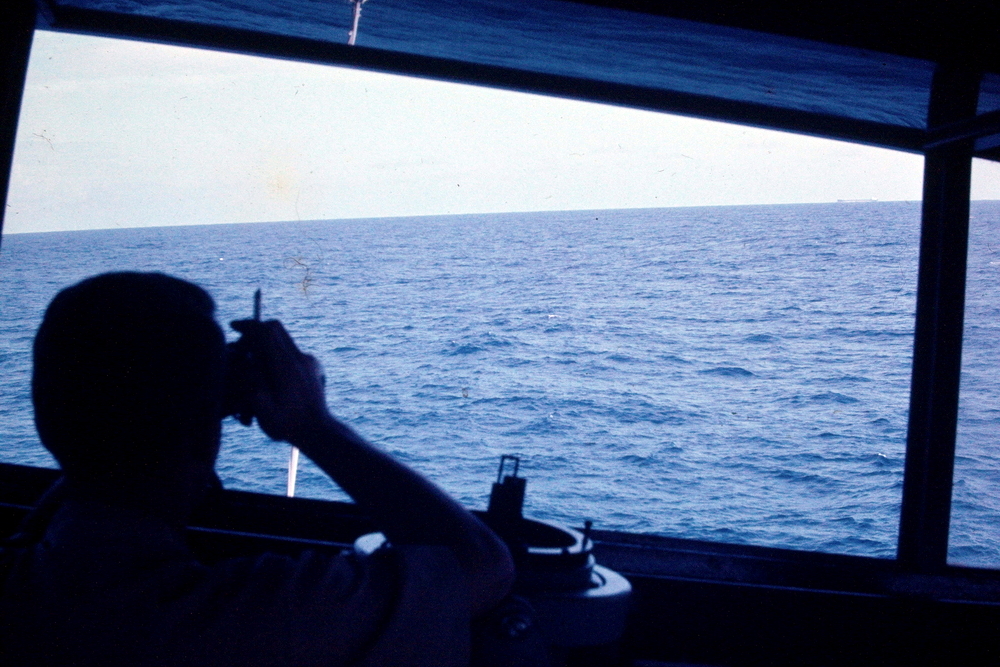
One night, our minesweeper (top speed of about 15-18 knots) was ordered to intercept a Russian trawler that was maybe 50 miles away. That was like sending a kid on roller skates after a police car doing 100 mph. We were at General Quarters, and everybody thought we were goners. Catholics were holding rosary beads; I had never heard the ship as quiet. We were called off before we got there because the Russian boat beat it. But in the interim, we all became very religious.
The only other time I thought I was heaven-bound was when we departed a short R&R in Hong Kong. We cause the tail end of a typhoon. Everybody on the ship was sick, the old man, officers, everybody. I struggled to get to sick bay. In order to get there, I had to go out on the fantail and reenter the passageway where the sick bay was located.
Crossing the fantail, I looked at waves that towered over the ship. I knew we would die for sure. When I got to sickbay, the corpsman had a sign on the door. “I’m sick too; go back to your rack.” I am told we took a 48-degree roll. That tore everything and everybody apart like nothing else.
Of all your duty stations or assignments, which one do you have fondest memories of and why? Which was your least favorite?
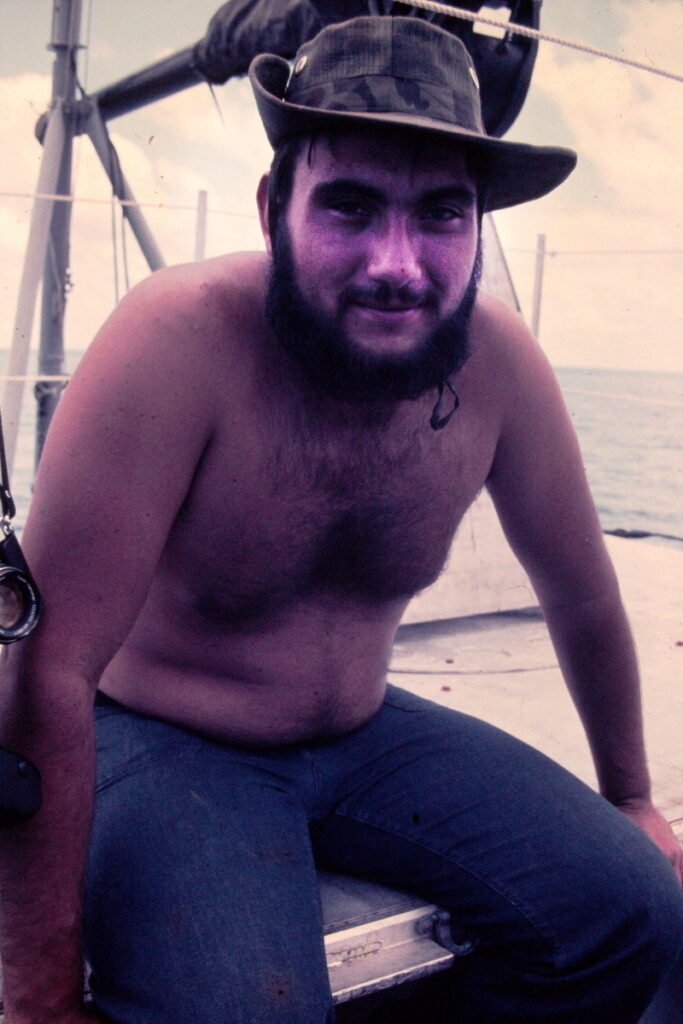
I guess the most memories are from my two years of shore duty in Oahu. I served in the Fleet Operations Control Center, Pacific, which was a teletype relay center for messages heading from and to the war zone. The work was monotonous, but when we earned stripes (from third class and then to second class), several of us decided to pool our money and rent a house out on the North Shore, on Sunset Beach.
It was a time when we mixed with hippies and other space cadets from the mainland, but also when many rock bands visited Honolulu Internation Center (HIC). Hence, during my time, I was privileged to attend concerts of such legends as Jim Morrison and the Doors, Janis Joplin, Three Dog Night, Credence Clearwater Revival, Procul Harem, Richie Havens, and Led Zeppelin. I guess one could say we were the short-haired Woodstock gang.
In our time off, we got to tour almost all other Hawaiian Islands with help from Special Services, which loaned us sleeping bags. We worked, at times, 12-hour shifts, three on, three off, then 72 hours off. That’s when we got enough time to play tourists. I hated 12-hour shifts.
From your entire military service, describe any memories you still reflect back on to this day.
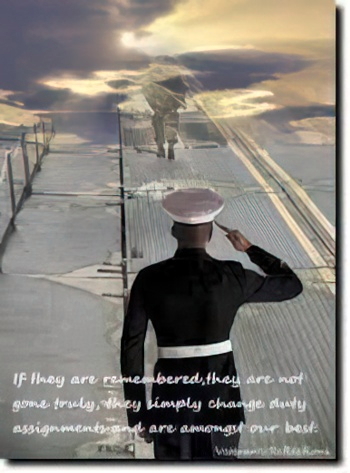
While in radio school in Bainbridge, Md., I could drive home on weekends to Cape May Court House, NJ.
One Friday, when I got home, my Mom cried, and my Dad said that my cousin, a Marine, had been killed in Vietnam, and he was in a little over a year.
My first duty station was in Hawaii, which meant a flight from Travis AFB in California. At the time, my aunt lived in Sacramento, so we arranged to meet briefly to see San Francisco before I flew West. On the way from the airport, we asked the cab driver to take us to Golden Gate Cemetery, where my cousin was buried. We didn’t even get to know each other really well, but to this day, I think we were young at the same time. He was killed, and I was starting in the Navy. Why? It’s a question I have never answered.
What professional achievements are you most proud of from your military career?
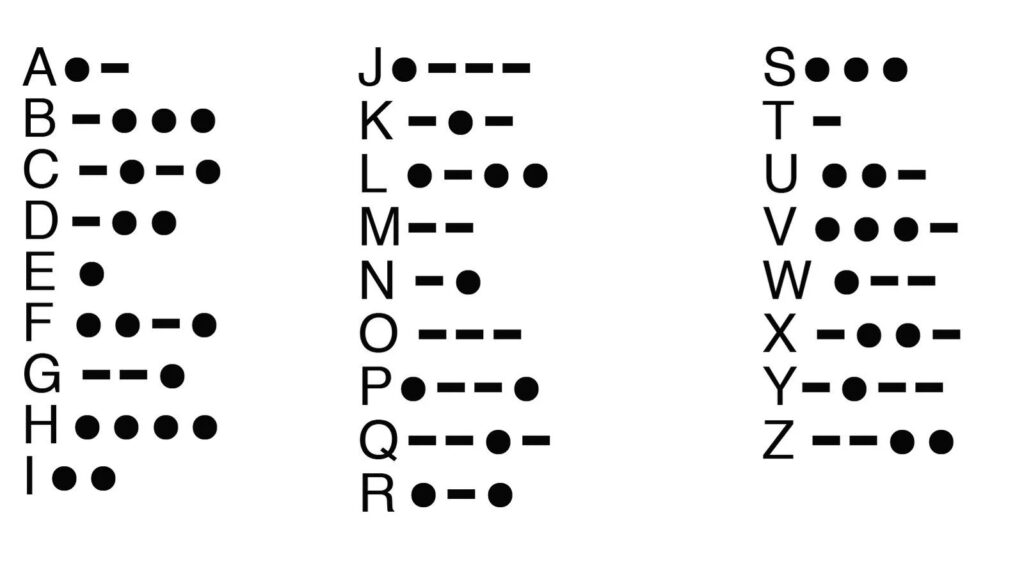
Learning Morse code.
Learning how to “read” teletype tapes for routing information.
Being awarded a Good Conduct Medal. (Actually, shall I say for not getting caught?)
Of all the medals, awards, formal presentations and qualification badges you received, or other memorabilia, which one is the most meaningful to you and why?
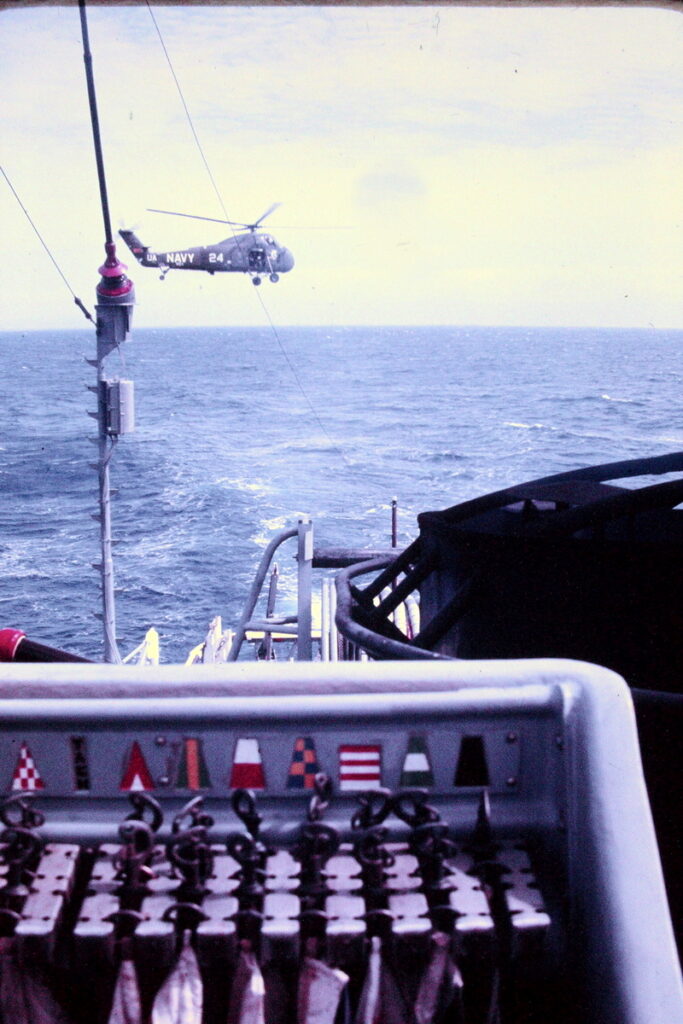
My Vietnam service medals and ribbons because I didn’t run off to another country or hide behind a student deferment to avoid military service.
Which individual(s) from your time in the military stand out as having the most positive impact on you and why?
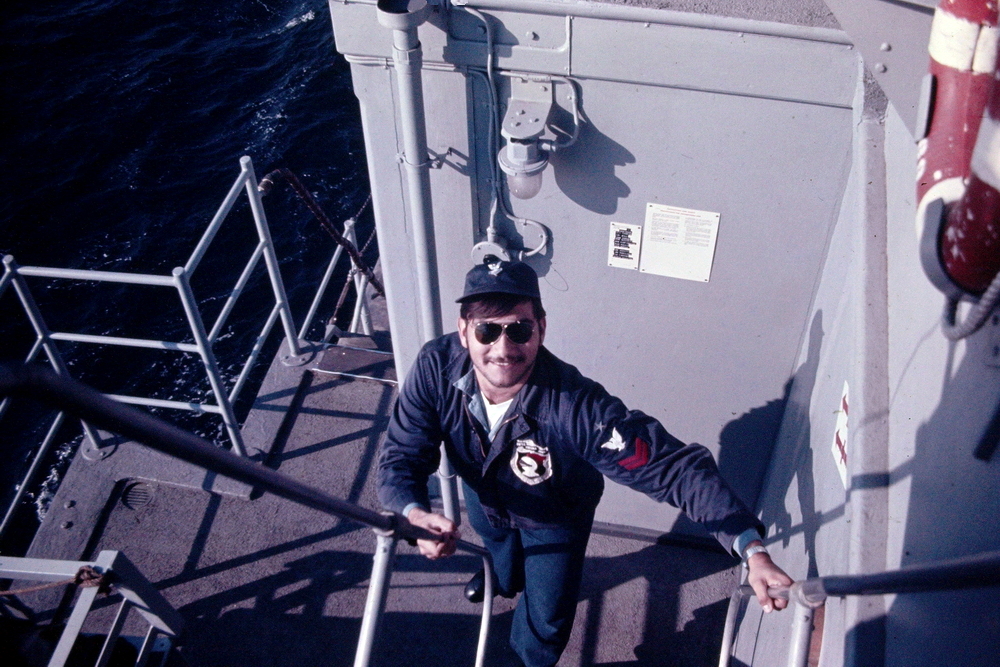
The one officer I had true respect for was LTJG Hauck (I think that was how it was spelled.) He was the ship’s engineering officer and was a “Mustang,” meaning he worked his way up from enlisted to officer. He would do anything for his men, and they, in return, would do anything for him.
I remember when we were still in Long Beach, the engineering crew was laboring long into the night for some reason.
I was on Quarterdeck Watch and saw him coming up the gangway with a couple of cases of beer. (A no-no aboard ship).
He said, “Campbell, look the other way.” Which, of course, I did without a moment’s hesitation. I saw nothing like that German guard in “Hogan’s Heroes.”
He was the only officer I wished I could have had as a division head. We had some other good officers, but he was the outstanding one of the whole bunch. He would have made one heck of a good admiral.
List the names of old friends you served with, at which locations, and recount what you remember most about them. Indicate those you are already in touch with and those you would like to make contact with.
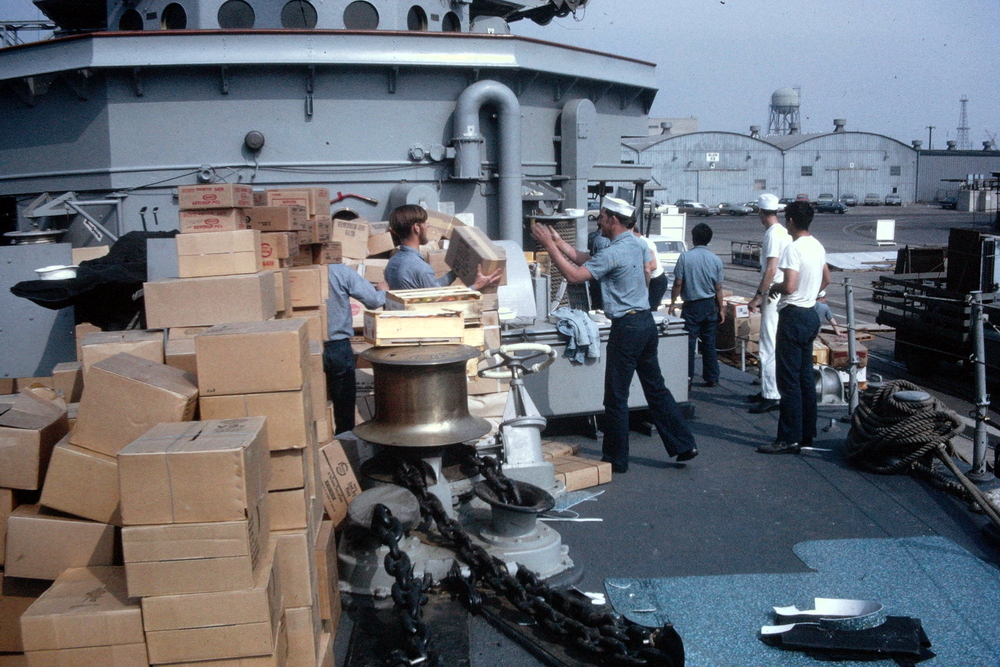
James (Jim) Race, in Hawaii. We had many good times. After we got out of the Navy, I was his Best Man, and he attended my wedding. Somewhere along the line, we lost contact with each other.
James Brinkman, also a radioman in Hawaii, was one of the guys with whom I lived on the North Shore.
Duane Bullock, aboard ship. We were both second-class radiomen.
Francis McGraw, in Hawaii, lived with us for a time on the North Shore.
Dennis Hayes, in Hawaii, was a friend of Race. We spent many evenings finishing off cases of brew.
I lost touch with every one of these chaps.
Can you recount a particular incident from your service, which may or may not have been funny at the time, but still makes you laugh?
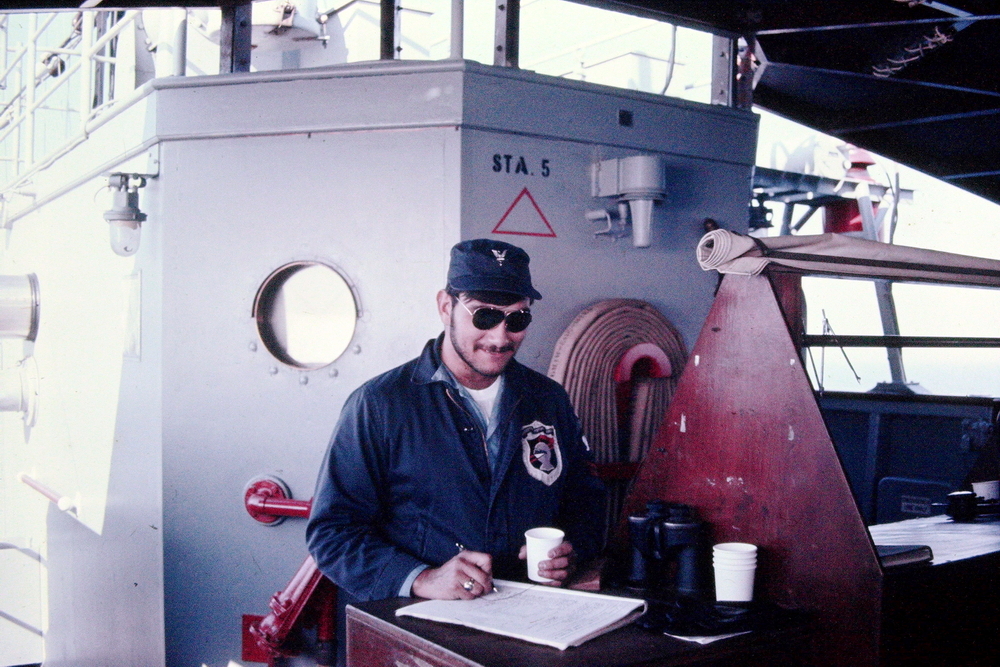
We were doing an underway replenishment.
I kept the deck log on the bridge, and the sky was something to behold.
An LTJG had the Deck and Conn while the Captain passed the time with the CO of the larger ship via signalmen.
The LTJG didn’t mind the ship; he was preoccupied with the beautiful sky. The ships began to get closer and closer while the “JG” was mindless of the impending danger.
Suddenly, the Captain screamed, “God dammit, Frank, do I have to do everything myself?” He then snapped an order to change course to avoid a collision slightly.
Of course, we all breathed a sigh of relief, but the poor JG likely caught hell from the Skipper down in “Officers Country.”
What profession did you follow after your military service and what are you doing now? if you are currently serving, what is your present occupational specialty?
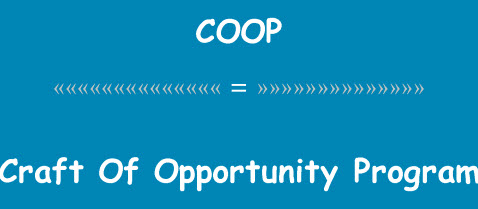
I went to work as a photographer-reporter for my town’s weekly newspaper, and it was a career I followed for 45 years, from which I retired in 2019. I am still fascinated with radios, although they are falling out of fashion given the popularity of the Internet and computers.
After active duty, I served in the Naval and Coast Guard Reserves for a total of maybe eight years, so not enough to get a retirement check from Uncle Sam. I most enjoyed the hitch in the Naval Reserve because it was on a Craft of Opportunity, basically a small vessel that would have acted like a minesweeper stationed at Coast Guard Training Center, Cape May.
What military associations are you a member of, if any? what specific benefits do you derive from your memberships?
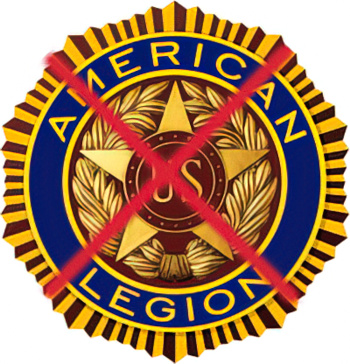
None. I tried the American Legion, but all the guys did was argue about getting blank shells to fire on Memorial Day. I attended one meeting, and that was enough for me.
In what ways has serving in the military influenced the way you have approached your life and your career? What do you miss most about your time in the service?
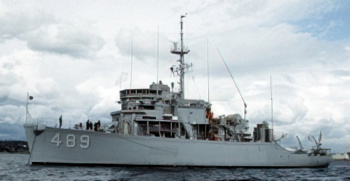
It helped me learn how to organize jobs and that you don’t always get what you want but what you need.
I found how they maintained equipment beneficial, so I tried to do that with the machines I own.
To this day, I hold a weekly field day to clean the house. I don’t fold clothes military style, but I fold them, which I probably wouldn’t do if I had not been in the Navy.
I guess the thing I miss most if it could be said I Miss it, was the regular routine, set daily, never varied. Meals are served at set times.
Based on your own experiences, what advice would you give to those who have recently joined the Navy?
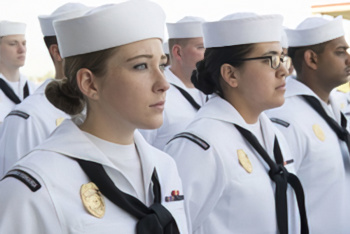
You are going to meet a wide variety of people. Some you will automatically like, others you won’t. Stay focused on your long-term goals. If the Navy meets them, stick with it if they don’t leave after your enlistment is up.
You must respect the uniform and rank, not necessarily the person wearing it. Lock your locker. Don’t spend all your pay in one night.
You will never get a second chance to make a first impression.
In what ways has togetherweserved.com helped you remember your military service and the friends you served with.
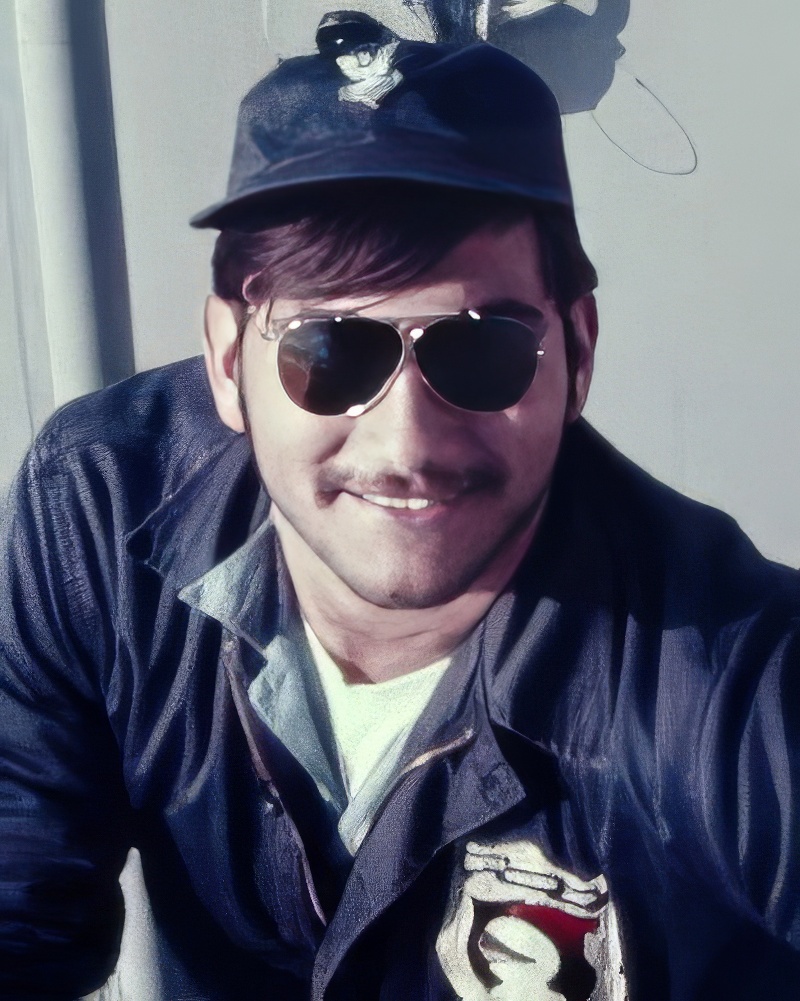
It evoked some memories that were hidden away in the back of my mind.
PRESERVE YOUR OWN SERVICE MEMORIES!
Boot Camp, Units, Combat Operations
Join Togetherweserved.com to Create a Legacy of Your Service
U.S. Marine Corps, U.S. Navy, U.S. Air Force, U.S. Army, U.S. Coast Guard

0 Comments